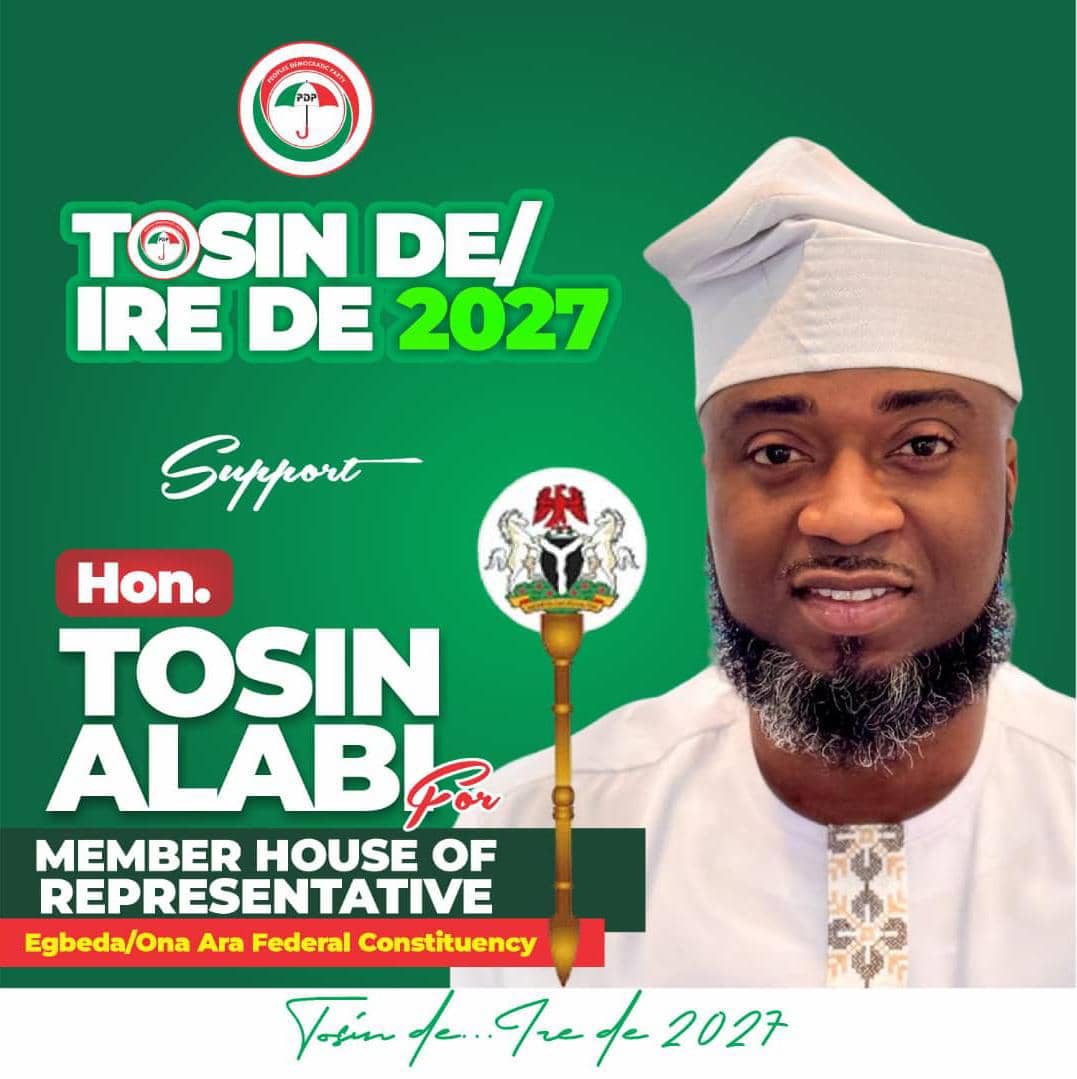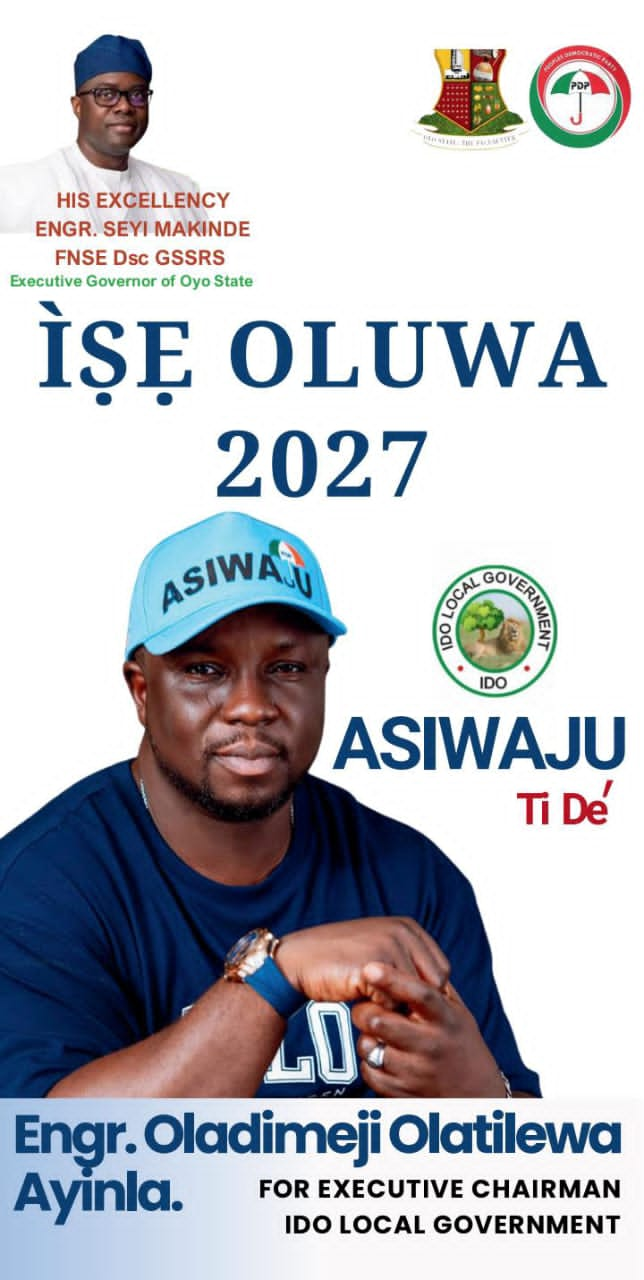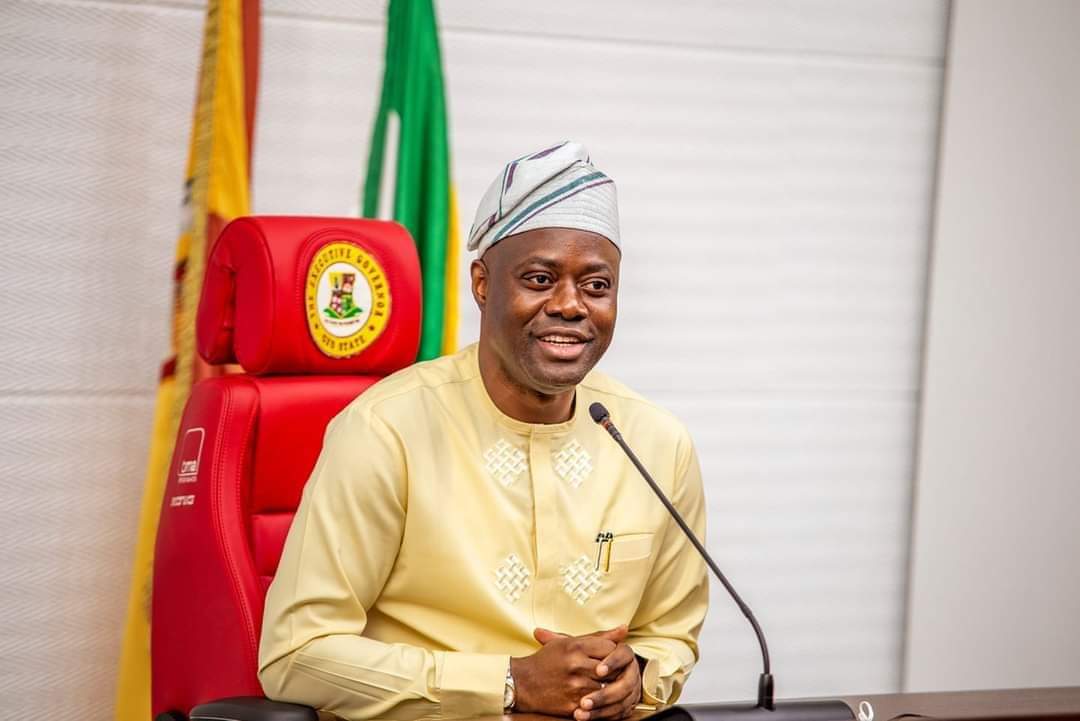OPINION: Makinde’s Classical Approach on Education, A Good Template for Nigeria Education
Quality is never an accident; it is always the result of intelligent effort. It is not a strange act, the improvement in the standard of education in Oyo State.
Governor Seyi Makinde believe that education would be much more effective if its purpose was to ensure that by the time they leave school every boy and girl should know how much they do not know, and be imbued with a lifelong desire to know it.


When Governor Seyi Makinde assumed office,the state was regarded to have the highest number of out of school children in south west Nigeria and the number out-of-school children were over 400,000. His government took a drastic step by scrapping of all educational levies including the N3,000.00 education levy for senior secondary school students as to encourage more children to go back to school.

• 10% in reduction in fees in the Oyo State College of Agriculture and Technology, Igboora,
• Free conduct of state examinations such as placement and screening exercise examination for admission into JSS 1.entrance examination into school of science.
• Distribution of free report cards to public secondary school students across the state to the tune of N23,849,300.00
• Distribution of text books to students in public secondary schools across the state to the tune of N2,053,623,025.71
• Distribution of 2,782,806 customized note books to students in public secondary schools in the state;
• Release of funds for the conduct of 2019 Common Entrance Examinations in the 33 LGAs and 35 LCDAs.

When quality education set in motion, good result will follow. Governor Seyi Makinde and his team ensure the following for effective delivery of good education in the state.
1 Encourage private providers to provide quality and affordable education to Oyo State.
The Oyo State Government under Governor Seyi Makinde has ensured that private schools are carried along in the implementation of its programmes and policies. For example, private secondary school students across Oyo State benefited from the distribution of free compendium of past questions given to all SS3 students in the state.
2. Collaborative effort from foundations and international donors.
The Oyo State Government collaborated with the World Bank, UNICEF, UNESCO, and the British Council in the development of the education sector. Oyo State is one of the beneficiaries of a $125M grant to Nigeria from the Global Partnership for Education fund.
3. Effective support from Alumni for the development of individual schools.
The Oyo State Government collaborated with alumni associations to support individual schools for all round development. Various intervention projects were carried out by Old Students’ Associations of schools like Government College, Apata; Bishop Phillips Academy, Ibadan; African Church Grammar Schools, Apata; Anwar-Ul-Islam Grammar School, Eleyele, Ibadan; and Oranyan Grammar School, Oyo.
4. Reliance on
Compulsory Free Universal Basic Education Act, 2004 which enable the government to pursue the enactment of the law to keep school-age children out of the street during school hours.
5. Improve teachers’ quality through adequate training and development.
The Teaching Service Commission (TESCOM) Oyo State, organised series of ICT trainings were organized for ICT teachers in the state’s public secondary schools as well as effective trainings for principals and vice principal across the state. SUBEB has also trained the head teachers and teachers of primary school.
Ahead of Schools’ resumption in Oyo State, the State Universal Basic Education Board has just concluded training of 2, 454 Head Teachers in the State, on Covid-19 preventive measures.
The Training session which was held across all Educational zones in the State.
The six major topics in the training, organised by Oyo State Emergency Operation Centre focused on managing schools and ensuring safety in the post-COVID lockdown; the concept and practice of social distancing and its implications; promoting personal, environmental hygiene and cough etiquette as safeguard against COVID-19 and other respiratory diseases. Other topics include, observing other preventive measures against COVID-19 with the use of face-mask; dealing with the psychological effects of pandemic and lockdown on learner and helping them to overcome the trauma and adjust to the realities of the disease; and identifying and responding to learners showing signs of illness.
The essence of this training is to ensure proper safety and precautions are met before the school resumes.
6. Collaborative support from private organisations.
Statistically, some private companies have collaborated with the state government.
• Airtel Nigeria, a telecommunication service provider, partnered with the state government in its Education in Emergency Program by providing 500MB of free data to each of the SS3 students in the state to access School-on Air Videos and for easy access of e-learning facilities on the Ministry of Education, Science and Technology’s website.
• Educational Advancement Centre (EAC), Ibadan partnered with the state by making its School-On-Air Videos available free for Oyo State students during the COVID-19 pandemic.
• SMART UP Ltd, an I.T. firm in Lagos gave free access to its CBT past questions to all Oyo State Students via the Ministry’s website (www.oysgedu.ng)
• A private organization called OYO-ILE Investors Forum donated 8 Million Naira to support the state on its 2020 Free JAMB Extramural Classes organized for the SSS 3 students across the state.
7. Renovation and Refurbishment of dilapidated school buildings and classrooms.
The Oyo State Government through the State Education Trust Fund (OYETF) and State Universal Basic Education Board (SUBEB) has also carried out massive renovation of classrooms in various schools across the 33 LGAs of the state.
8. Effective school feeding programme for pupils to enrich their health and learning capabilities.
The State government has been able to sustain the Home-Grown School Feeding Programme and is also ready to scale up the programme to accommodate Basic 4-6 pupils.
9. Monitor standards of learning and teaching in state schools through an effective team.
The Quality Assurance Department of the Ministry of Education, Science and Technology has left no stone unturned in ensuring high standard of learning and teaching through regular effective monitoring.
The state Commisioner for education in Oyo State, Barrister Olasunkanmi Olaleye also ensured the private school owners under the body of Association of Private School Owners of Nigeria (APSON) and League of Muslim School Owners comply with the standard set by the state government for public schools also met by the private school and he notified the school owners the importance of standard education as the state government has structured 5 point standard rate with structural, academic and welfare of students and staffers in their schools will be well monitored.
Schools will be rated based on the assessment for quality assurance.
10. The ongoing termly running costs that comprises of N400,000,000 to secondary schools and N126,000,000 to primary schools.
• Special release of N500M Naira made to LAUTECH for outstanding salary payments
• N200M Naira released to The Polytechnic, Ibadan for Accreditation of 15 programs
• Sustenance of 100% monthly subvention to all the state-owned tertiary institutions
11. The Oyo State Government has enhanced practical learning in the state by:
• Establishment of Government Technical College (Junior) in Technical College, Ogbomoso to serve as feeder for Colleges at Ibadan, Oyo, Ogbomoso, Iseyin and Saki
• One Thousand (1,000) out-of-school children, school leavers and women on acquisition of skills were trained for self- reliance in Bead making, Block making, Pastries, Tie and Dye and Painting.
• The Polytechnic, Ibadan, Ibarapa Polytechnic and Oke-Ogun Polytechnic have established vocational skills and entrepreneurial study centres that are both academic and business oriented.
12. Bridge the gender gap.
Oyo State has received an initial BESDA grant of $3m (initiated by the previous administration) to commence the educational programmes in Ona-ara, Kajola, Surulere, Saki West, Akinyele, Olorunsogo, Iseyin, Saki East, Oyo West, Ogbomosho South, Ogbomosho North and Iwajowa to support over 170,000 out-of-school children. The money is being targeted to address the gender gap in female education. Currently,Oyo State for being the first State in Nigeria to have successfully participated in writing the Better Education Service Delivery (BESDA) examination in Nigeria.
In fulfilling his mandate in education, Governor Seyi Makinde at the conference organised by University Ibadan last year with the theme “Prioritising Quality Assurance: Teaching, Research And Professional Conduct. ” solicited for the support of the university where members of the faculty conduct independent inspection of teachers in the discharge of their duties.
The governor believe this expected to improve quality assurance in public schools in the state. If by now, the result of his effective contribution to education is showing with the declaration of the state moving from 27th position to 11th position. This shows that efficiency is a measure of how well or how productively resources are used to achieve a goal.
Basically goal of the state governor is to make Oyo State the hub for education tourism in Nigeria, not just at the basic education level but at the tertiary level as well. The state now has the biggest education spending allocation of 22.4% of the 2020 budget, topping the federal government’s 15%.
Records from the finance ministry showed that last year the state increased education spending to 10% from the previous 4% and provided a N526 million grant to all primary and secondary schools to be disbursed term by term.
With all these input by the state governor, all indications from the educational sector in Oyo State shows that education is the passport to the future, for tomorrow belongs to the people who prepare for it today.
Written by GreatKamal

